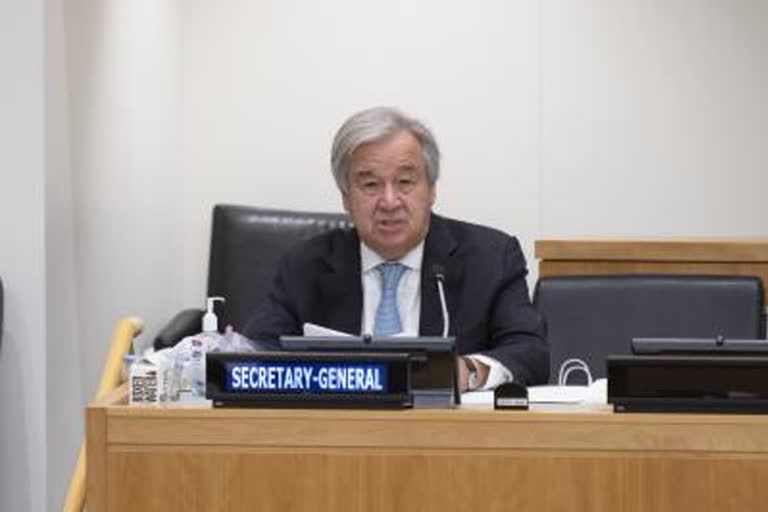New York: Pressure keeps building on increasingly anxious world leaders to ratchet up efforts to fight climate change. There’s more of it coming this week in one of the highest-profile forums of all — the United Nations.
For the second time in four days, this time out of U.N. headquarters in New York, leaders will hear pleas to make deeper cuts of emissions of heat-trapping gases and give poorer countries more money to develop cleaner energy and adapt to the worsening impacts of climate change.
“I’m not desperate, but I’m tremendously worried,” United Nations Secretary-General Antonio Guterres told The Associated Press in a weekend interview. “We are on the verge of the abyss and we cannot afford a step in the wrong direction.”
So on Monday, Guterres and United Kingdom Prime Minister Boris Johnson are hosting a closed-door session with 35 to 40 world leaders to get countries to do more leading up to the huge climate negotiations in Scotland in six weeks. Those negotiations in the fall are designed to be the next step after the 2015 Paris climate agreement.
And all this comes after Friday, when U.S. President Joe Biden convened a private forum on climate to coax leaders to act now.
“We are rapidly running out of time,” Guterres said at Biden’s forum. “There is a high risk of failure” of negotiations in Glasgow.
This week’s focus on climate change comes at the end of another summer of disasters related to extreme weather, including devastating wildfires in the western United States, deadly flooding in the U.S., China and Europe, a drumbeat of killer tropical cyclones worldwide and unprecedented heat waves everywhere.
Also read:'Nowhere to run': UN report says global warming nears limits
Achieving some kind of success in emission-cut pledges or financial help during the week of U.N. sessions would ease the path to an agreement in Glasgow, just as early announcements of pollution curbs did in 2015, especially those from China and the United States, experts said. Now those two nations are key again. But, Guterres said, their relationship is “totally dysfunctional.”
Nigel Purvis, a former U.S. State Department climate negotiator and CEO of the private firm Climate Advisers, said the political forces going into Glasgow don’t look as optimistic as they did four months ago after a Biden virtual climate summit.
But, he says, there is still hope. Countries like China, the world’s top carbon emitter, have to strengthen their Paris pledges to cut carbon pollution, while rich nations like the United States that did increase their emissions promises need to do more financially to help poorer countries.
“The Glasgow meeting is not shaping up to be as well politically prepared as the Paris conference was in 2015,” Purvis said. And Pete Ogden, vice president of the United Nations Foundation for Energy and Climate, cited “worrying mistrust between nations at a time when greater solidarity is needed.”
As the world’s leaders gather, activists, other government leaders and business officials gather in New York City for Climate Week, a giant cheerleading session for action that coincides with the high-level U.N. meeting. And throughout the week the push is on the rich nations, the G-20, to do more.
